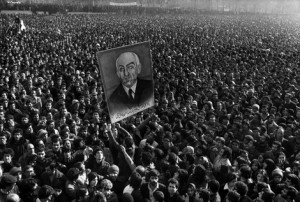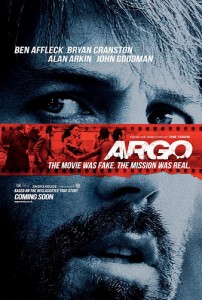
A portrait of Mossadegh held by protesters at Tehran University during the Iranian Revolution, January 1979 (Abbas/Magnum Photos)
The Iranian government’s reaction to Argo’s winning the Oscar for Best Picture in March 2013 – see my previous blog below – fitted well with one of the Islamic Republic’s favored ways of working: one that British journalist James Buchan has called “lachrymose intransigence”[1].
This intransigence has not helped Iran to advance its cause internationally, especially during the Ahmadinejad presidency. Since the arrival of the new president Rouhani, we have seen a change of tone, seemingly expressing a need to differentiate itself from the previous government, in speech[2] as well as in deeds[3]. While cautious optimism becomes possible again for the resumption of talks on the nuclear issue, let us not forget that the ultimate power in Iran is held by the Supreme Leader Ayatollah Ali Khamenei – a favorite disciple of Khomeini’s – whose radical positions are well known, at least until now[4].






